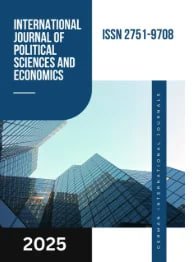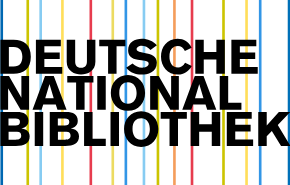PRINCIPLES OF CREATING ECOTOURISM TERMINOLOGY DICTIONARIES AND THEIR REPRESENTATION IN LEXICOGRAPHIC SOURCES
DOI:
https://doi.org/10.55640/Keywords:
ecotourism terminology, lexicography, dictionary principles, semantic consistency, terminology compilation, sustainable tourism, lexicographic representationAbstract
The development of ecotourism terminology dictionaries is an essential aspect of modern lexicographic research, reflecting the growing significance of sustainable tourism in linguistic and cultural contexts. This article explores the fundamental principles underlying the creation of ecotourism terminology dictionaries, including systematic classification, conceptual accuracy, semantic consistency, and user-oriented functionality. It also examines how these terms are represented in various lexicographic sources, focusing on their structural organization, contextual usage, and cross-linguistic equivalence. By analyzing both theoretical approaches and practical examples, the study highlights the importance of integrating scientific rigor with practical application in dictionary compilation. The findings emphasize that well-structured ecotourism dictionaries not only serve as valuable reference tools but also contribute to the standardization and dissemination of specialized vocabulary in the field of sustainable tourism.
References
1.Buckley, R. (2018). Ecotourism: Principles and practices (2nd ed.). CABI Publishing.
2.Das, M., & Chatterjee, B. (2015). Ecotourism: A tool for sustainable development. International Journal of Environmental Sciences, 5(6), 114-122.
3.Fennell, D. A. (2020). Ecotourism (5th ed.). Routledge.
4.Gössling, S., Scott, D., & Hall, C. M. (2018). Global trends in nature-based tourism. Journal of Sustainable Tourism, 26(12), 214-231. https://doi.org/10.1080/09669582.2018.1425892
5.Honey, M. (2019). Ecotourism and sustainable development: Who owns paradise? (3rd ed.). Island Press.
6.Weaver, D. (2020). The evolving concept of ecotourism: A critical review. Tourism Recreation Research, 45(2), 127–141. https://doi.org/10.1080/02508281.2020.1713135
7.Ziyodova, S. S. (2017). Ekoturizm terminlarini leksikografik tadqiq etish masalalari. Filologiya masalalari, 2(3), 45–50.
8.Rasulov, A. M. (2019). Ekoturizmning zamonaviy tendensiyalari va atamalar tizimi. O‘zbekiston tilshunosligi jurnali, 7(1), 33–41.
9.Karimova, D. A. (2021). Ecotourism terminology and its role in sustainable tourism development in Uzbekistan. Til va Madaniyat, 4(2), 58–66.
10.Akhmedova, N. R., & Tursunov, I. (2022). Leksikografiyada ekologik terminlarning tasnifi va ularning qo‘llanilishi. O‘zbek tilshunosligi va tarjimashunoslik masalalari, 10(1), 92–101.
11.Qodirova, M. B. (2023). Ekoturizm terminlarining zamonaviy lug‘atlarda ifodalanishi. Oliy ta’lim va ilm-fan, 11(3), 77–84.
12.Hall, C. M., & Higham, J. (2019). Tourism, biodiversity and global sustainability. Earthscan.
Downloads
Published
Issue
Section
License

This work is licensed under a Creative Commons Attribution 4.0 International License.
Authors retain the copyright of their manuscripts, and all Open Access articles are disseminated under the terms of the Creative Commons Attribution License 4.0 (CC-BY), which licenses unrestricted use, distribution, and reproduction in any medium, provided that the original work is appropriately cited. The use of general descriptive names, trade names, trademarks, and so forth in this publication, even if not specifically identified, does not imply that these names are not protected by the relevant laws and regulations.







